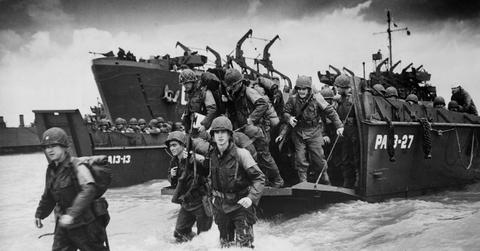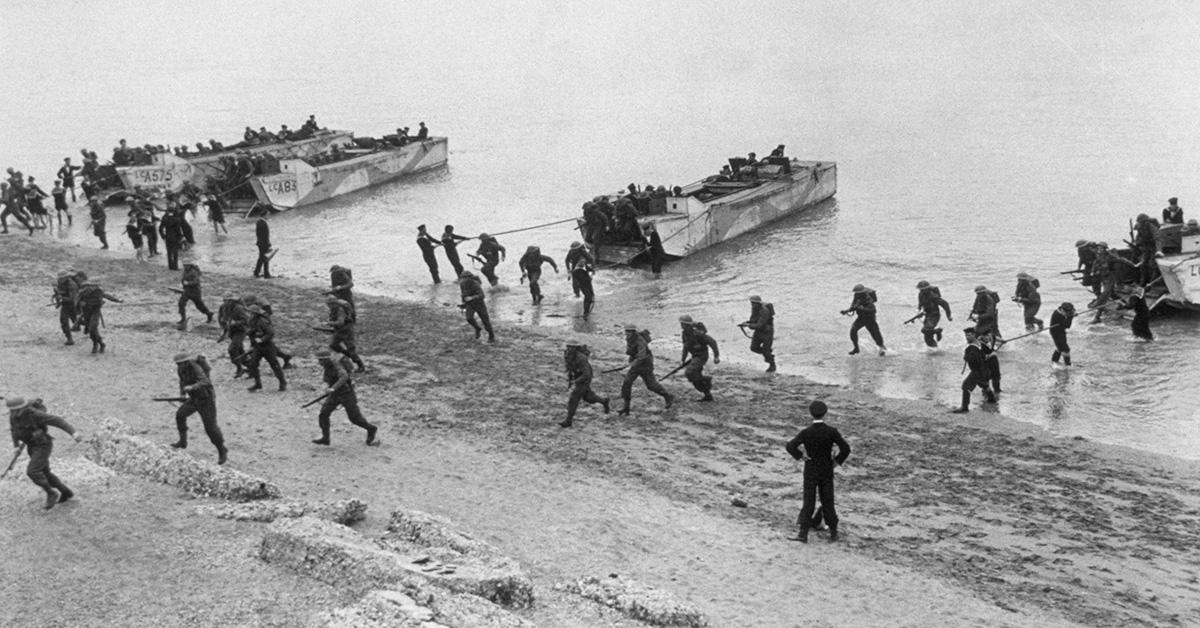June 6 Is the Anniversary of D-Day, but What Does D-Day Actually Mean?
The plans for the invasion at Normandy were known as Operation Overlord, but June 6 itself became known as D-Day.
Published June 6 2024, 9:50 a.m. ET

Every year on June 6, we mourn and remember those who participated in D-Day, the massive military operation that saw the Allied Forces begin the push that would ultimately end World War II. D-Day has been memorialized in countless films and TV shows, and it's a day that almost everyone knows at least something about.
Even if you've heard of D-Day, though, you might be confused about how exactly it came by its name. Here's what we know about the naming behind D-Day, and why that name was the one that stuck in the history books.

Why is it called D-Day?
The plans for the invasion at Normandy were known as Operation Overlord, but June 6 itself became known as D-Day. The reasons for the name are actually relatively straightforward. D-Day is shorthand used by the Armed Forces to refer to the launch day for any major military operation. It's actually short for "Day-Day," and it's simply meant to give those in the military a way to refer to the launch of a major new initiative without using the date.
D-Day was an internal term often used by the military, then, but it eventually found its way into the broader culture as a reference to Operation Overlord specifically. Now, D-Day is used outside of the Armed Forces the same it's used inside them, as a way to refer to a day when something momentous is going to happen, whether that thing is good or bad.
D-Day was actually supposed to be June 5.
While we all now know that June 6 is D-Day, the operation was supposed to launch on June 5, but was delayed a day because of bad weather in the English Channel. It may seem like just a piece of history now, but those who were launching the invasion were far from sure that it would be a success, even as they knew it was their last best chance to win the war.
In fact, D-Day was a surprise in part because Normandy felt like a pretty unnatural place to start an invasion from. There was no port, and it was one of the farthest distances to cross from Britain, which is precisely why the Allied Forces decided to attack there. The operation was so innovative that new equipment had to be invented to carry it out, including the landing crafts that have become so well known thanks to movies like Saving Private Ryan.
The Allies also had to create artificial harbors to solve the problem of Normandy lacking any actual ports.
The success of D-Day for the Allied Forces marked a turning point in the broader war, and it would take less than a year for the war to officially end.
Now, those former Allied countries continue to celebrate the momentous day, even as many of their citizens don't know that D-Day just means "Day Day." "Day Day" might be more accurate, but it's hard to deny that D-Day sounds cooler.